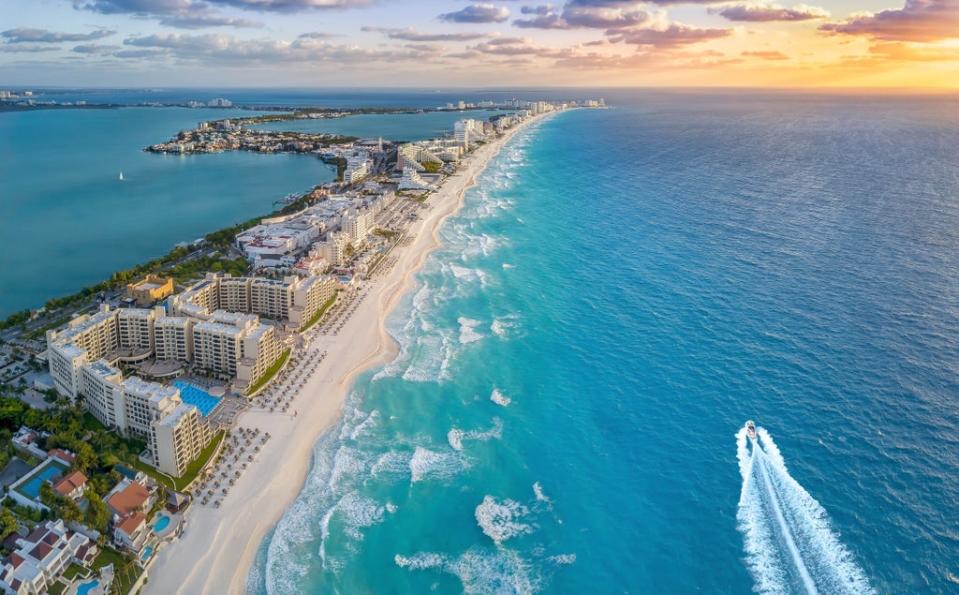Which countries can I travel to if I’m not vaccinated?

Many countries across the world have introduced regulations which permit entry only to fully vaccinated travellers.
However, some Britons have chosen not to accept the vaccine, while many younger people are still awaiting their second dose.
According to government data, around 81 per cent of over-16s have received two vaccines, rising to 89 per cent for a single jab.
A number of European countries have said that unvaccinated travellers from the UK will be welcome, provided (in most cases) that they can show a negative PCR test result.
It’s worth remembering, however, that unvaccinated travellers returning to the UK from amber or red list countries will need to quarantine for 10 days upon their return and take tests on day two and day eight.
However, new travel rules set to take effect from 4 October will change this requirement.
On 17 September, the Department for Transport (DfT) announced that from 4 October, the three traffic light lists will be scrapped, leaving just the red list and one other list of “safe for travel” destinations, comprised of the merged green and amber lists.
From 4am on 22 September, eight countries will also move from the current red list to the amber list, meaning they’ll go on to join the new “safe” or “ROW” (rest of the world) list from 4 October.
From 4 October, fully vaccinated travellers returning to the UK from these ROW destinations will no longer have to carry out a pre-departure test before returning to the UK - though this rule remains in place until then.
Fully vaccinated travellers will still have to do a post-arrival PCR test within two days of entering the country, until “late October”, when cheaper lateral flow tests will be allowed.
However, travellers who have not had both vaccine doses will have to self-isolate for 10 days even when coming from the countries on this new “safe” list - taking a day two and day eight PCR test. Those in England can take an extra ‘test to release’ PCR on day five to end quarantine early.
Unvaccinated travellers will still have to take a pre-departure test, too, before travelling into the UK.
The changes will initially only apply to arrivals into England. The devolved parliaments of Scotland, Wales and Northern Ireland are able to set their own rules.
Here are the places where you can travel without a jab.
Which countries can I travel to without being vaccinated?
Spain
The UK’s favourite holiday destination is welcoming British holidaymakers who can provide a negative PCR test issued within 48 hours of arrival.
As an amber list country, however, unvaccinated travellers returning to the UK will need to quarantine for 10 days upon their return and take tests on day two and day eight.
This includes the Balearic Islands (Mallorca, Menorca, Ibiza and Formentera) and the Canaries.
Madeira
While the Portuguese mainland is off the cards for unvaccinated travellers (unless you fancy 14 days of quarantine upon arrival), Madeira isn’t. The diminutive island off the northwest coast of Africa requires visitors to present a negative PCR test taken within 72 hours of arrival and complete and submit a traveller questionnaire before departure.
Unvaccinated visitors to mainland Portugal still need to quarantine for 14 days on arrival.
Croatia

Unvaccinated travellers to Croatia can enter the country with proof of either a negative COVID-19 antigen test, issued within 48 hours of arrival, a negative PCR test issued within 72 hours of arrival, or a doctor’s certificate of recovery following a positive test result between 11 and 180 days prior. Passengers arriving without a valid test certificate will be denied entry to Croatia.
Greece
With around a fifth of Greece’s economy dependent on tourism, this popular tourist destination has been keen for UK holidaymakers to return for some time. Unvaccinated travellers can enter this amber list country with proof of a negative PCR test issued within 72 hours of arrival, proof of a negative Covid-19 rapid antigen test from an authorised laboratory, undertaken within the 48 hour period before your arrival, or proof of recovery from Covid-19. The NHS does not provide proof of recovery certificates but Greece will accept evidence of a positive COVID-19 PCR test result taken between 30 to 180 days of your travel dates.
Cyprus
Unvaccinated travellers to Cyprus must provide proof of a negative PCR test taken within 72 hours prior to departure, and then take another PCR test upon arrival at Larnaca or Paphos airports, and remain in isolation until the result comes back (this should be no longer than three hours). Travellers staying more than a week must take additional PCR or rapid antigen tests every seven days following arrival, unless able to provide proof of contracted coronavirus in the past six months. Children under 12 are exempt from testing requirements.
Unvaccinated visitors to Northern Cyprus may only avoid official quarantine if they can provide proof of having contracted Covid-19.
Slovenia
Unvaccinated travellers to Slovenia must provide a Digital Passenger Locator Form as well as either a PCR test not older than 72 hours or a rapid antigen test not older than 48 hours - or alternatively, a positive PCR test result that is older than 10 days but more recent than 6 months old, confirming that the traveller has had Covid-19 and not more than 6 months have passed since the first symptoms.
How about further afield?
The UAE
You do not have to be fully vaccinated to visit the UAE, which is now on the UK’s amber list. Unvaccinated arrivals to the Emirates must present evidence of a negative PCR test taken no more than 72 hours before departure. This must be shown at check-in.
Visitors to Dubai will also have to register their details on the COVID-19 DXB App, as well as completing a health declaration form and a quarantine form. Both forms need to be printed, completed and handed over to Dubai Health Authority staff on arrival.
Travellers arriving in Abu Dhabi will also be required to undertake a PCR test upon arrival. Those arriving in Dubai may be required to do the same.
India
At the moment, all regular international flights between the UK and India are officially suspended; however, a limited number of flights continue to operate as part of an air corridor.
Anyone who needs to travel to India is required to upload a negative PCR test result taken in the 72 hours before their scheduled flight time to newdelhiairport.in. They will undergo thermal testing on arrival. Unvaccinated travellers must then quarantine for seven days.
Unvaccinated travellers must quarantine at home for 10 days on their return to the UK, and take a PCR test on days two and eight.
Mexico

Britons travelling to Mexico must complete a health declaration form and scan the QR code it generates upon arrival in the country.
There is currently no requirement to provide a negative PCR test or quarantine on arrival, though many resorts ask guests to complete health questionnaires.
Elsewhere, Brits who have not received two vaccines continue to be barred from Canada. From “early November”, however, UK travellers who have received two jabs will be able to travel to the US again.
Many popular Caribbean holiday destinations have either halted commercial flights with the UK or require visitors to undertake a period of mandatory quarantine at a government facility upon arrival.

 Yahoo News
Yahoo News 
